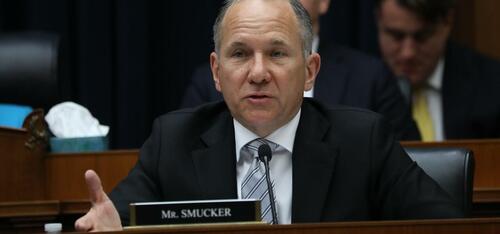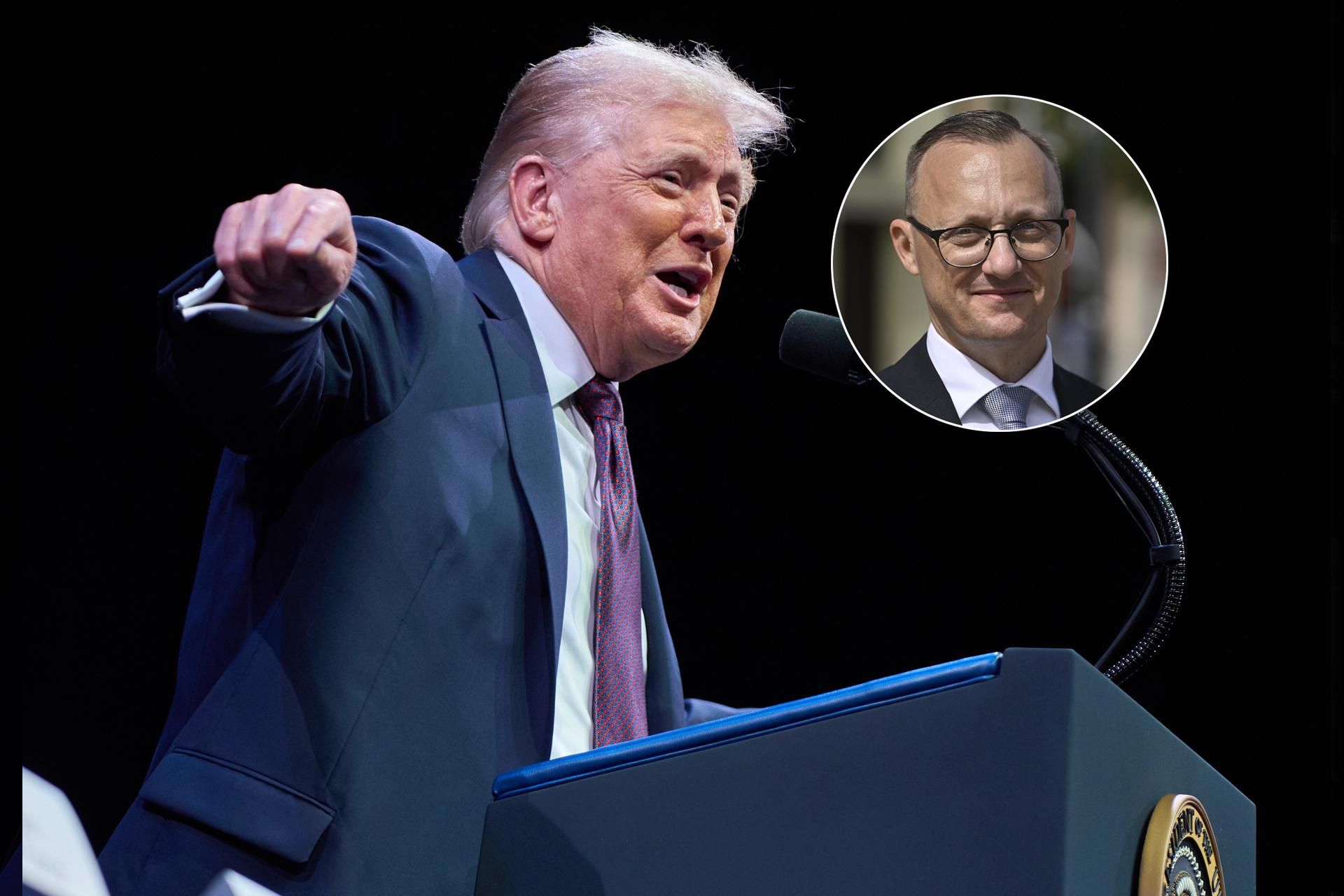GOP Fiscal Hawks Dig In, Insist Megabill 'Must Not Add To The Deficit’ To Avoid $50 Trillion Debt By 2035
A bloc of 32 House Republicans is pressuring their party’s leadership to uphold strict fiscal constraints as Congress moves to draft the sweeping legislative package underpinning former President Donald J. Trump’s domestic agenda.

In a letter sent Wednesday to Speaker Mike Johnson and Majority Leader Steve Scalise, the lawmakers, led by Representative Lloyd Smucker of Pennsylvania, vice chair of the House Budget Committee, demanded that any reconciliation bill adhere to the House’s budget resolution and “must not add to the deficit.”
The group includes several members of the tax-writing Ways and Means Committee and a number of conservatives aligned with the House Freedom Caucus, including its chairman, Representative Andy Harris of Maryland.
Their insistence arrives at a critical moment, as Republicans rush to finalize the multi-committee legislative package set to cement Trump’s priorities on taxes, border security, and energy. The Agriculture, Energy and Commerce, and Ways and Means Committees are all expected to begin marking up portions of the package next week.
At the heart of the fiscal standoff is a demand that any proposed tax cuts – set at a maximum of $4.5 trillion under the budget resolution – be reduced if Republicans fail to meet a $2 trillion spending cut benchmark. Smucker’s amendment to the resolution requires that any shortfall in spending cuts be matched with proportional reductions in tax relief. A $1 trillion gap, for example, would mean no more than $3.5 trillion in tax cuts.
That formula has inflamed tensions within the GOP’s ranks, particularly among members of the Ways and Means Committee. Its chair, Representative Jason Smith of Missouri, has said as much as $5.5 trillion in tax cuts is needed to realize Trump’s vision, including making the 2017 Tax Cuts and Jobs Act permanent. Yet some of the most vocal calls to scale back that figure are now coming from within his own committee.
„Under the House’s framework, the reconciliation bill must not add to the deficit,” wrote the lawmakers, Politico reports. The letter continues;
„A $2 trillion reduction in spending may sound substantial. However, it equals only 2.3 percent of projected federal outlays over the next decade and only reduces the rate of growth in spending. Even with those savings, annual spending is expected to grow from $7 trillion to $10 trillion over the next 10 years, and debt will exceed $50 trillion by 2035.„
The fiscal constraints are also complicating other politically sensitive elements of the package. Republicans on the Agriculture Committee are sparring over how far to cut food assistance programs, while members of Energy and Commerce are debating the scope of Medicaid reductions. Hard-right conservatives are urging aggressive cuts to achieve budgetary goals, while moderates—particularly from swing districts—warn that such moves could endanger benefits for millions.
Blue-state Republicans, many of whom also serve on Ways and Means, remain embroiled in a separate but related battle over the state and local tax (SALT) deduction, pushing for income caps or broader eligibility thresholds.
That said, according to Punchbowl News, the SALT Republicans 'have more leverage than you think.’
Let’s put this plainly: A handful of SALT members are willing to tank the reconciliation package and President Donald Trump’s domestic agenda if they don’t get a SALT deal they like.
“It is a hill I am willing to stake my entire congressional career on,” Rep. Nick LaLota (R-N.Y.) said. LaLota said he’d be “pressing the red no button” if the SALT cap isn’t high enough.
Here’s Rep. Mike Lawler (R-N.Y.), who represents a swing district and is eyeing a gubernatorial run:
“I’ve been very clear with leadership and the administration from the very beginning — if there is not a fix for SALT, there is no bill. If nothing passes, SALT comes back unlimited, so it is on leadership to offer a number and negotiate from there. We are not negotiating against ourselves.”
Remember: This entire reconciliation package is a snake pit for moderate House Republicans. Some have privately argued to us that they’d be better off voting against it because of the cuts to Medicaid, SNAP and social programs. But SALT is also an acute and immediate problem that Republicans are nowhere close to solving.
Meanwhile, Smucker’s coalition has injected another hurdle into an already fraught process. “The House budget resolution assumes that enacting President Trump’s agenda, including extending the 2017 tax cuts, will generate $2.5 trillion in additional revenue through economic growth,” the group wrote. “This means that all additional tax cuts or increases in spending above this level must be offset.”
With competing priorities and a tight self-imposed timeline, Republican leaders face growing pressure to reconcile ideological divides within their conference. Whether they can thread the fiscal needle without splintering the party remains to be seen.
Tyler Durden
Thu, 05/08/2025 – 12:45













![Finał Eurobasketu. Turcja - Niemcy. Gdzie i o której oglądać? [TRANSMISJA]](https://i.iplsc.com/-/000LLQKGSGV50N9D-C461.jpg)
